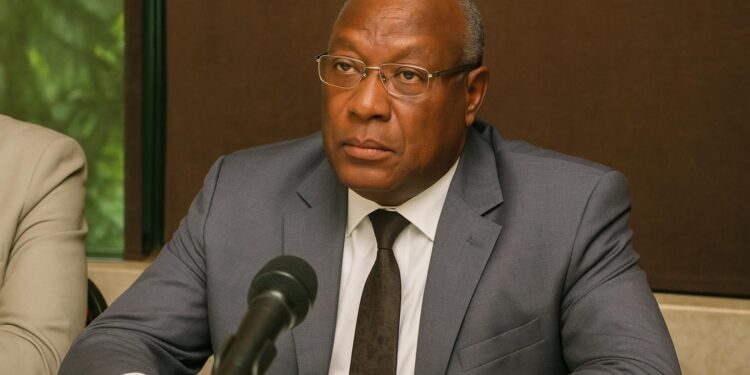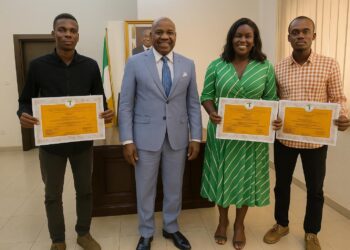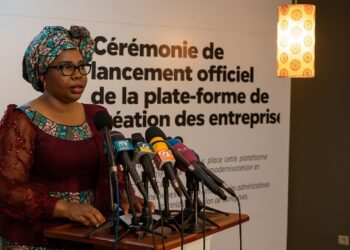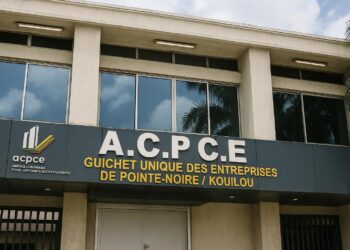IP Day signals continental momentum
Africa observed its 26th African Day of Technology and Intellectual Property on 13 September, reflecting on innovation as a driver of structural change. The date also marked the third anniversary of the African Intellectual Property Organization, which unites seventeen regional economies.
Human skills at the core of IP strategy
Speaking from Brazzaville, Minister Antoine Thomas Nicéphore Fylla Saint-Eudes placed human capital at the centre of the debate. He argued that Africa’s ability to commercialise ideas rests on engineers, designers, lawyers and builders able to navigate IP regimes.
For the minister, exclusive rights create predictable revenue streams, making the training of patent examiners, trademark agents and judicial staff a macroeconomic priority. The annual celebration, he stressed, should trigger public-private programmes that align curricula with continental development agendas and industrialisation targets.
Brazzaville’s policy framework and leadership
Congo-Brazzaville has long considered intellectual property a pillar of its diversification roadmap. Under President Denis Sassou Nguesso, successive budgets have earmarked funds for the national industrial property centre, while fiscal incentives encourage SMEs to register patents and brands locally before seeking regional protection through OAPI.
Fylla Saint-Eudes underlined that the strategy complements the Government Action Plan 2022-2026, which promotes value addition in forestry, agribusiness and digital services. Stronger IP enforcement, he noted, reassures investors considering greenfield facilities in the Pointe-Noire special economic zone or technology parks near Brazzaville.
Business implications and competitive edge
Exclusive rights give companies time to recoup research costs and to negotiate licensing deals on favourable terms. For Congolese start-ups, a defensible patent portfolio can unlock seed capital from local banks or multilateral facilities that increasingly use intangible assets as collateral benchmarks.
Similarly, clear trademark protection helps exporters differentiate cocoa, coffee and timber products in competitive markets. The minister recalled that counterfeit goods erode tax revenue and consumer safety, adding that border measures under the African Continental Free Trade Area need well-trained customs officers.
Universities, labs and the innovation pipeline
Brazzaville University, Marien-Ngouabi University and several applied research centres have been encouraged to create technology transfer offices. According to the ministry, integrating patent landscaping into coursework can orient students toward unmet industrial needs and reinforce a culture of disclosure rather than secrecy.
The call aligns with OAPI’s observer status at the Pan-African University, which aims to harmonise STEM curricula across member states. Fylla Saint-Eudes suggested that future engineers should graduate with basic familiarity with patent databases, claims drafting and international classification standards to shorten time-to-market for prototypes.
Regional cooperation under OAPI umbrella
Created in 1999 by a summit of the former Organisation of African Unity, Africa’s IP Day also honours the establishment of OAPI. The Yaoundé-based agency offers a one-stop system where a single filing grants protection in all seventeen member jurisdictions, simplifying compliance for cross-border ventures.
Congo-Brazzaville’s delegation will lobby for enhanced digital filing services at the next OAPI council. Officials say quicker processing will benefit small enterprises located far from national offices, reducing costs and making formal protection more attractive than keeping innovations as trade secrets.
Keeping creators’ rights at the center
Intellectual property is often reduced to patents, yet the literary and artistic branch remains key for Congo’s thriving music and film industries. The minister reminded broadcasters to secure licences before airing material, stressing that predictable royalties encourage creators to reinvest in professional studios and higher production values.
Collective management organisations have been tasked with raising awareness of the economic weight of copyrights. Fylla Saint-Eudes pointed to the global success of Afrobeats as evidence that well-protected cultural goods can become major export earners comparable to commodities.
Financing and valuation of intangible assets
Commercial banks in Brazzaville are still conservative toward IP-backed lending. However, the minister cited ongoing discussions with development finance institutions to design guarantee mechanisms that de-risk such instruments, allowing entrepreneurs to monetise patents or brand portfolios without immediate dilution of ownership.
Accounting standards present another hurdle, as many firms book intellectual property at symbolic values. The authorities intend to work with professional bodies to update valuation guidelines, enabling balance sheets that more accurately reflect intangible capital and improving credit analysis for both lenders and investors.
Outlook for investors and ecosystems
Stakeholders interviewed during the celebrations expressed optimism that clear rules will lower perceived risk in knowledge-intensive sectors. International partners view the reform momentum as complementary to the AfCFTA, which envisages continent-wide value chains in pharmaceuticals, renewable energy equipment and digital services.
Over the coming months, the ministry plans outreach missions to chambers of commerce and incubators to translate the day’s messages into actionable guidelines. Fylla Saint-Eudes concluded that, by treating ideas as tradable assets, Congo-Brazzaville can move beyond raw exports and secure inclusive, sustainable growth.












































